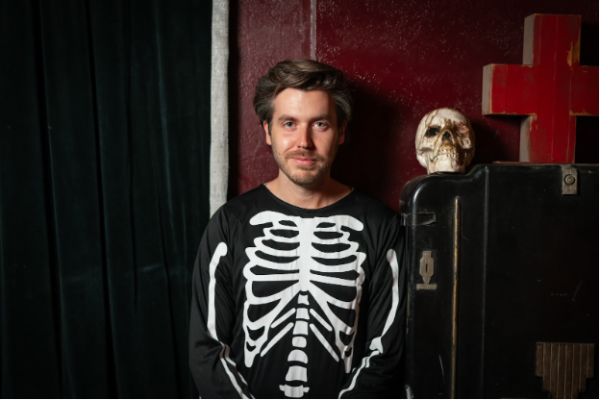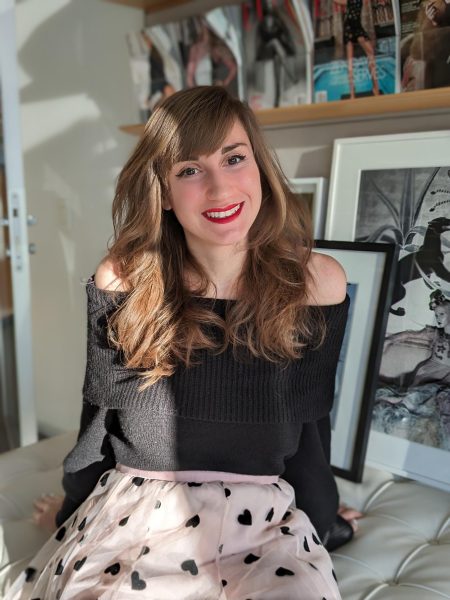Centennial’s Thoughts on Recent Book Bannings
Books are a major way for students and teachers alike to be able to learn. They can be fiction or nonfiction and focus on a wide range of topics, but each different genre reflects an author’s imagination.
Between September and November of 2021, the US had the largest number of new books challenged in a three month period since 1990, which was when the American Library Association started tracking challenged and banned books, the majority of which tackled topics such as Critical Race theory, anti-police, and LGBTQ+ topics.
Many Centennial teachers are against banning books, as they usually believe that it’s a form of censorship. Linda Norris, Centennial media specialist, is a part of the Instructional Materials Criteria/Review Committee (CRC), which is the committee that evaluates books that are put forward for various reasons, whether they be a part of the school library or part of the student curriculum. It’s made up of not only teachers, but parents and community members, as well as students. Her role is to read the books that are brought forward and then attend a meeting to discuss and share her opinion on whether or not the book should be taken off of school shelves. The process is extensive, so in Howard County there haven’t been many bans in recent years. However, according to Norris, there has been a rise in the amount of books put forward, as last school year, there were “maybe two to three books re-evaluated.” This year alone, there have been six.
There are many different reasons someone would want to put forward a book to be re-evaluated by the committee, the most common of which involve books being sexually explicit, questioning religion, involving LGBTQ+ characters, and displaying racism. Books such as Speak by Laurie Halse Anderson and The Bluest Eye by Toni Morrison were both banned in many school systems throughout the United States for being too vulgar, as both depict sexual abuse.
Many times, complaints about books are rooted in bias, and as Centennial social studies teacher Katherine Parker said, “It comes from a place of fear.” Books such as The Hate U Give by Angie Thomas, which comment on political topics such as police brutality and the Black Lives Matter movement, have been banned for “hate speech,” as well as “negative bias” as said by the American Library Association. “People are afraid of change or they’re afraid in some way that they’ll be impacted if it’s a story that doesn’t represent theirs,” said Parker.
When it comes to banning books and censorship, teachers agree that it’s unnecessary and ineffective, as most censored works of literature are specifically written to make the reader uncomfortable due to the heavy topics. “When they are exposed to these kinds of books and titles and choices, it helps them put themselves in someone else’s shoes, or have an experience that they’ve never experienced,” said Norris, “to develop a sense of empathy for the characters or the people in the stories, and to know that there are all types of issues that other people experience, or kids their own age or young older go through in their lives. I think it’s good that we understand that our lives are not like everyone else’s.” Since the entire process of banning books is based on a complaint by one parent, teacher, or student, it’s rooted in a level of unfairness. “I think a lot of the concerns are from individual parents who have concerns about individual books for individual reasons,” explained Centennial English teacher Van Westervelt. “And they’re not thinking about the bigger picture or the quality of literature or what the literature contributes to the historical time period. I think [books] become archival documents of how people were reacting to and experiencing what was happening all around them.”
Many books in Centennial’s English curriculum have been challenged for their violent and depressing nature, such as Animal Farm or 1984, both by George Orwell, as well as an arguable overall classic, Fahrenheit 451, by Ray Bradbury. Many books, especially at the middle and high school levels are thought of as too mature, such as The Diary of Anne Frank, which is a historical artifact from the Holocaust that is used as education on things like war and genocide, as well as Perks of Being a Wallflower, by Stephen Chbosky, which captures how some teenagers deal with familial suicide and depression. When a child is not allowed easy access to books that deal with unfamiliar topics, whether they are fictional or not, their understanding and empathy for others is restricted. “Being raised to read literature about a diverse set of subjects allows students to develop their own opinion on it because it forces students to think,” said sophomore Allie Liu. “Books are definitely a tool to help raise awareness, educate, and change the way people think.” Liu also believes that oftentimes, when adults preach about banning a book for the level of maturity, they don’t take into account how the children feel. “They have passed their own judgment on the literature and deemed it unnecessary for us to know about. It would be a representation of them thinking we are not mature enough to handle certain topics, such as the LGBTQ community.”
Censorship is a large problem when it comes to public education. Both students and teachers agree that when committees ban books such as Harry Potter, by J.K. Rowling, or feel-good, coming-of-age graphic novels such as Smile, by Raina Telgemeir, it limits imagination and restricts them to thinking their life experiences are the same as everyone else’s. “I question if it’s really right for one person to say they don’t want their child to read that book,” said Parker, “but yet can they make that decision for other students that are in the school or in a classroom?” Teachers and students feel unheard by the higher powers of education, because there are different ways in which teachers teach, and therefore different ways in which students learn. “We do not have a goal to shove an idea down someone’s throat that would be our personal or political agenda,” said Van Westervelt, “So why would we ban literature for having creative imaginative ideas?”
js/im
For more breaking news and photos, follow The Wingspan on Instagram and Twitter @CHSWingspan.





